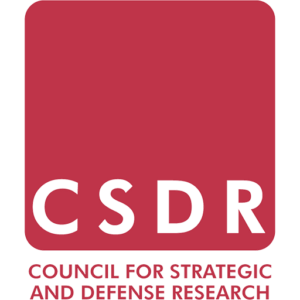External Affairs Minister S. Jaishankar engaged in a series of discussions in Brussels this week with the top leadership of the European Union. A pivotal point on his agenda was to discuss pathways of forging a robust India-EU security partnership. A trifecta of challenges has pinned Europe in a corner – a conditional US foreign policy, the enduring conflict in Ukraine, and pessimism about a post-war European peace. Similarly, emerging from the latest conflict with Pakistan, New Delhi’s strategic imperative to diversify its partnerships and build capacity is now more urgent than ever, given the collusive threat posed by the China-Pakistan nexus. Naturally, a powerful consensus is emerging: the long-nascent India-EU relationship must urgently acquire a security and defence dimension. The opportunities are significant, but they must be pursued with a clear-eyed understanding of the challenges and based on realistic expectations.
Seizing the Tangible, Seizing the Now
The momentum for a deeper engagement is palpable. Earlier this year, European Commission President Ursula von der Leyen announced that the EU is exploring a Security and Defence Partnership with India, similar to what it has with Japan and South Korea. This announcement is premised on similar interest from New Delhi. Such political will, from both sides, has several other channels of expression. A memorandum of understanding on maritime cooperation could be under consideration. However, the bigger prize is a Security of Information Agreement (SIA), a key pillar that currently constrains the exchange of classified or sensitive information between the EU and a third country, such as India. An SIA would help unlock more sensitive areas of cooperation, including Indian participation in Permanent Structured Cooperation (PESCO) projects, the EU’s framework for joint defence capability development.
In the immediate term, the potential for cooperation is not just abstract; it is about addressing acute supply chain vulnerabilities and seizing a historic economic opportunity. The war in Ukraine has exposed deep frailties, driving up prices of defense materiels. 155mm artillery shells, something that India’s defense industry is now exporting widely, are just one example of an immediate opportunity. Similarly, Europe needs reliable partners for everything from drone motors and propulsion systems to explosives, such as ammonium nitrate, and the rare earth elements that are the foundation of modern military hardware.
Beyond traditional defence, cooperation in the space domain offers immediate dividends. The EU’s Copernicus programme, an Earth observation system with growing security applications, is a prime example. The legal text governing third-party cooperation with Copernicus makes no distinction between India and a close partner like Norway, presenting a clear pathway. The focus on space situational awareness is critical for both sides. By leveraging the Copernicus model, where financing for infrastructure in third countries can yield a return in data and services, India can integrate into a cutting-edge civilian-military programme, strengthening its capacities while contributing to a shared vision of space security and sustainability.
Overcoming Hurdles, Building Capacity
The path forward is not without its challenges, which require frank acknowledgement. From a European perspective, there is a persistent lack of understanding of the Indian administrative landscape—a confusion about who holds the authority to make decisions and drive concrete projects. Conversely, India is often a “victim of its own success,” with several powerful EU member states preferring the expediency of bilateral defence ties over a slower, more complex EU-level relationship. These hurdles are compounded by a stark mismatch in diplomatic capacity. The absence of a dedicated Defence Attaché at the Indian embassy in Brussels is a glaring gap that needs to be corrected.
An important yet persistent hurdle, which is likely to remain, is in the India-NATO relationship. While NATO doesn’t expect a formal partnership with India, there are expectations of India considering becoming a “contact country,” an informal, flexible arrangement that requires no binding treaty. Such status would open the door for Indian officers to attend courses at the prestigious NATO Defense College in Rome and for Indian observers to participate in select exercises, such as those in the Baltics. However, New Delhi may decide to keep this decision in abeyance as it risks triggering its deep-rooted concerns around formal alliances.
What lies ahead?
Notwithstanding these challenges, the enormity of this moment in Europe’s history is unmistakable. True to the EU’s nature as an economic regulator, its ReArm Europe plan is an economic instrument that promises member states fiscal flexibility to generate an estimated €650 billion in additional defence spending over four years, which would not count towards national deficit limits. This is complemented by a proposed €150 billion loan instrument, the ‘Security Action for Europe’ (SAFE), to further support joint investment. This massive injection of capital creates an unprecedented market for India’s burgeoning defence sector to meet its export goals. For India, this is an opportunity to integrate into resilient supply chains and co-develop critical technologies.
Ultimately, consolidating a bilateral geopolitical outlook and building this partnership is about more than just military hardware; it is about preserving the rules-based international system and jointly shaping the standards for the technologies that will define this century. During his ongoing visit to Brussels and Luxembourg, the Minister pointed to India’s value as a ‘trustworthy’ trading partner, a non ‘uninvolved’ actor in the Russia-Ukraine war as well as a country with a long-standing grievance against present-day western partners’ support for Pakistan in the past. The conversation on precedents, international morality, nuclear brinkmanship and solidarity against security threats has acquired a fresh colour in recent months owing to Trump 2.0 and the recent India-Pak war. Meanwhile, the trend towards deepening the partnership has only advanced further still. As the Minister reasoned, “The EU is clearly a major pole in the global order – and increasingly an autonomous one. That is precisely why I’m here: to deepen our relationship in this multipolar world”.
